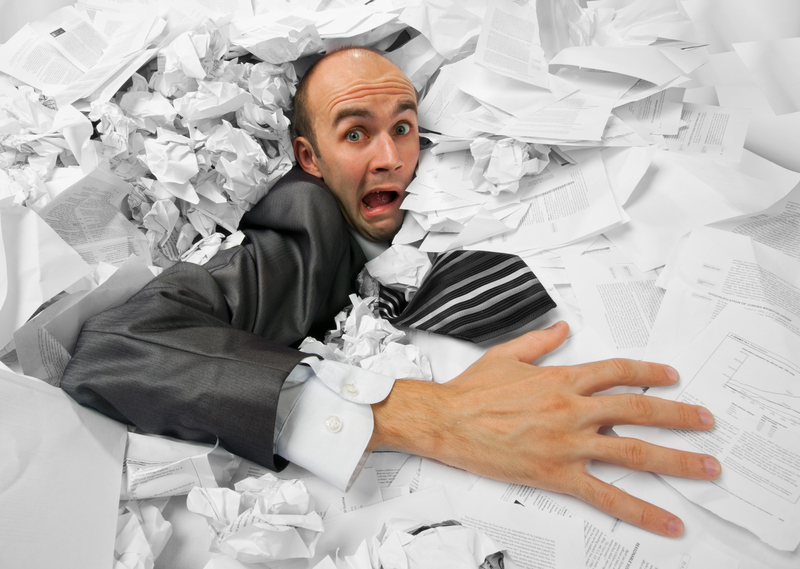Easy Tips to Save on Bulky Waste Item Removal
Are you tired of spending a small fortune on bulky waste item removal? Whether you're clearing old furniture, large appliances, or yard debris, getting rid of oversized junk can be both stressful and expensive. Fortunately, there are simple strategies you can employ to save time, money, and hassle when tackling these larger-than-life waste challenges.
In this comprehensive, SEO-optimized guide, we'll walk you through easy, actionable tips for cost-effective, environmentally responsible, and convenient bulky waste disposal. Let's dive right in!
What Is Bulky Waste and Why Is Its Removal a Challenge?
Bulky waste refers to large household items that are too big or heavy for regular curbside collection. Think along the lines of:
- Old sofas, armchairs, or mattresses
- Broken appliances like washers, dryers, and fridges
- Large electronics (TVs, computers, etc.)
- Garden refuse--branches, tree trunks, etc.
- Carpet and large rugs
- Construction debris
Removing these oversized items presents unique obstacles, including high disposal costs, transportation difficulties, and limited landfill space. However, with a little planning and smart strategies, bulky item removal doesn't have to break the bank.

Easy Tips to Save Money on Bulky Waste Removal
Below are some practical tips and alternatives to help you save money (and even help the planet!) when getting rid of your bulky trash.
1. Know What Qualifies as Bulky Waste
Before you begin, check with your local authority or waste management company to determine what is officially classified as "bulky waste." This can vary by city or region. For example, some councils accept certain electronics or carpet rolls as regular trash, while others require special pick-up services. Knowing this can prevent unnecessary removal fees.
2. Schedule Municipal Bulky Waste Collection
Many municipalities offer free or low-cost bulky item collection days, sometimes annually or biannually. Take advantage of these:
- Visit your local council's website to find scheduled bulky waste pickups.
- Book a slot or register your items if required.
- Place your items outside according to their guidelines.
Tip: Plan your big clean-outs to coincide with these dates for maximal savings!
3. Donate or Sell Usable Items
Is your "waste" actually someone else's treasure? Don't forget the old saying--one person's junk is another's treasure. If your furniture, appliance, or large item is still functional, consider:
- Donating to local charities or shelters
- Listing them on online marketplaces (e.g., Craigslist, Facebook Marketplace, Freecycle)
- Hosting a garage or yard sale
Many charities will even pick up large items for free, saving you both money and effort.
4. Upcycle or Repurpose What You Can
With a bit of creativity, you can transform that old wooden dresser into a unique bookshelf, or repurpose broken tiles for DIY yard decor. Upcycling not only saves you cash on bulky waste removals but also contributes to environmental sustainability.
5. Rent a Truck and Do It Yourself
If municipal pickup or donation isn't an option, consider renting a truck or van and transporting the waste to a local landfill, recycling center, or waste transfer station yourself. This is particularly cost-effective if you have multiple large items or can team up with neighbors for a shared trip.
Tip: Call ahead to check disposal fees and accepted items to avoid wasted trips!
6. Share Costs with Neighbors
If several households on your street are looking to clear out bulky items, consider organizing a joint removal service. By pooling resources:
- You can receive bulk discounts from waste haulers
- Reduce the number of separate pickup trips
- Help prevent illegal dumping in your community
7. Compare Quotes and Services
Don't settle for the first bulky waste removal company you find online. Shop around:
- Request estimates from several licensed and insured companies
- Ask about volume-based versus item-based pricing models
- Look for customer reviews and recommendations
Comparing rates ensures you get the best value for your needs.
8. Separate and Sort Your Bulky Waste
Some municipalities or landfill sites charge less for items that are properly separated (e.g., metal, electronics, green waste). Sorting your junk into clear categories can:
- Reduce overall tipping fees
- Maximize recycling opportunities
- Make it easier for removal teams
9. Get Familiar with Recycling Options
Did you know that many bulky items are recyclable? Old mattresses, scrap metal, appliances, and electronics can often be recycled at designated facilities. This not only saves on landfill costs but is far better for the environment.
Tip: Ask your city about local recycling efforts or look up nearby collection points for specific items like e-waste, white goods, and scrap metal.
10. Avoid Fines with Proper Disposal
While it might be tempting to leave your unwanted sofa on the curb with a "free" sign or to dump it in a vacant lot, illegal disposal can result in hefty fines. Always follow your city's regulations for responsible bulky waste removal.
Environmental Impact: Reduce, Reuse, Recycle
When disposing of bulky trash, it's crucial to consider the environmental impact. Landfills are quickly filling up, and many bulky items contain materials that could be reused or recycled.
- Reduce: Only replace large items when necessary.
- Reuse: Offer gently used items to others.
- Recycle: Take advantage of e-waste recycling and metal scrapping services.
By following these steps, you help preserve natural resources and contribute to a cleaner, greener world.
Frequently Asked Questions About Bulky Waste Removal
How much does it cost to remove bulky items?
Costs vary widely based on size, number of items, location, and the service provider. However, using the tips above--like municipal pickups, donations, or DIY transport--can significantly reduce bulky waste removal expenses.
Do companies charge by item or by volume?
Some removal companies charge per item (especially for things like mattresses or appliances), while others bill by volume (cubic yards or truckloads). Always ask for detailed pricing before booking.
Can I leave large items at the curb?
Only if it's in line with your municipality's rules! Check local guidelines about what can and cannot be collected, scheduled pick-up days, and proper placement to avoid fines and ensure swift removal.
What about hazardous materials?
Hazardous items--like paint, chemicals, or certain electronics--require special disposal procedures. Never place these with regular bulky waste; instead, use designated collection sites or events.
Pro Tips for Bulky Waste Item Removal Savings
- Plan ahead: Gather all your bulky items for removal at once to save on repeat travel or collection fees.
- Check for vouchers: Some regions offer annual bulky waste disposal vouchers. See if you qualify!
- Disassemble where possible: Breaking large items into smaller parts can lower removal costs and simplify transportation.
- Ask friends for help: Borrow a truck or enlist extra hands for a DIY move.
- Stay legal: Never engage in illegal dumping, which risks large fines and damages the environment.

Quick Summary: Your Bulky Waste Savings Checklist
- Know your local rules on what's considered bulky waste
- Use free or subsidized municipal bulky item collection days
- Donate, sell, or upcycle reusable items
- Compare removal quotes and service options
- Sort and separate for cheaper disposal and more recycling
- Never dump large items illegally
Final Thoughts: Save Big While Staying Responsible
Bulky waste removal doesn't have to be a costly nightmare. By being informed, resourceful, and environmentally conscious, you can save money and make a positive difference. Use municipal services when available, upcycle or donate what you can, and always follow proper disposal practices.
The next time you're clearing out oversized waste, keep this guide handy for easy, affordable, and responsible bulky item removal. Your wallet--and the planet--will thank you!
If you found these bulky waste savings tips helpful, don't forget to share this article with friends, family, and neighbors. Together, let's keep our communities clean and costs low!